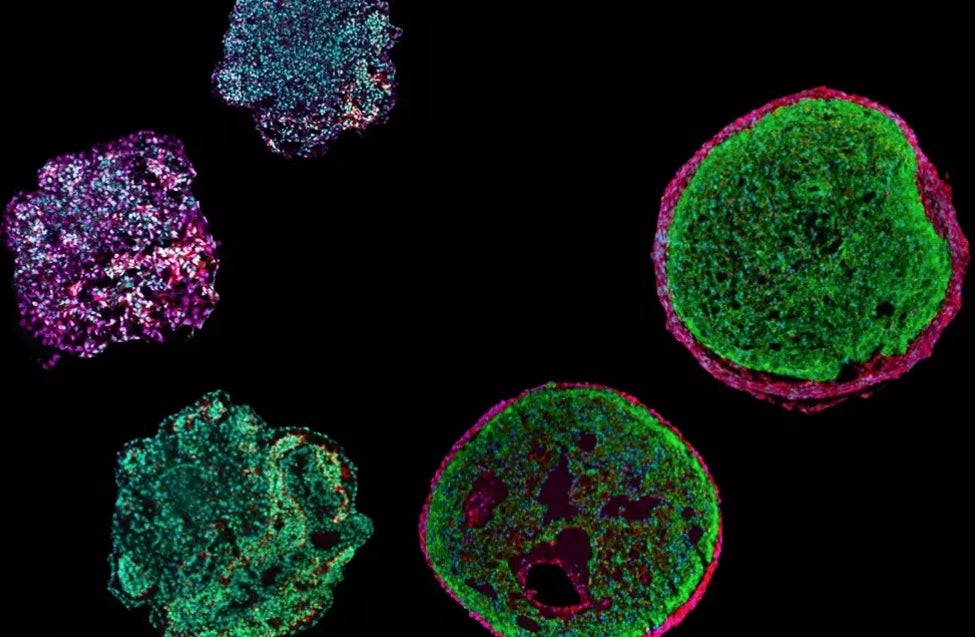A team of scientists have developed a beating ‘mini-heart’ formed in a small petri dish.
A team at the Technical University of Munich (TUM) has induced stem cells to emulate the development of the human heart.
The study was headed by Dr Alessandra Moretti, Professor of Regenerative Medicine in Cardiovascular Disease, at the Technical University of Munich (TUM) in Germany.
A ball of 35,000 cells
Her team have developed a method for making a sort of ‘mini-heart’ using pluripotent stem cells. Around 35,000 cells are spun into a sphere in a centrifuge. The result is known as an organoid (below).
Over a period of several weeks, different signalling molecules are added to the cell culture under a fixed protocol.
In this way, we mimic the signalling pathways in the body that control the developmental program for the heart,
explains Alessandra Moretti. The group has now published its work in the journal Nature Biotechnology on 3rd April.
 Cardiac organoid
Cardiac organoid
The ‘organoids’ measure about half-a-millimetre in diameter and while they do not pump blood, they can be electrically stimulated and contract like a human heart.
This advance will permit the study of the earliest development phase of our heart and facilitate research on a wide range of cardiac diseases.

